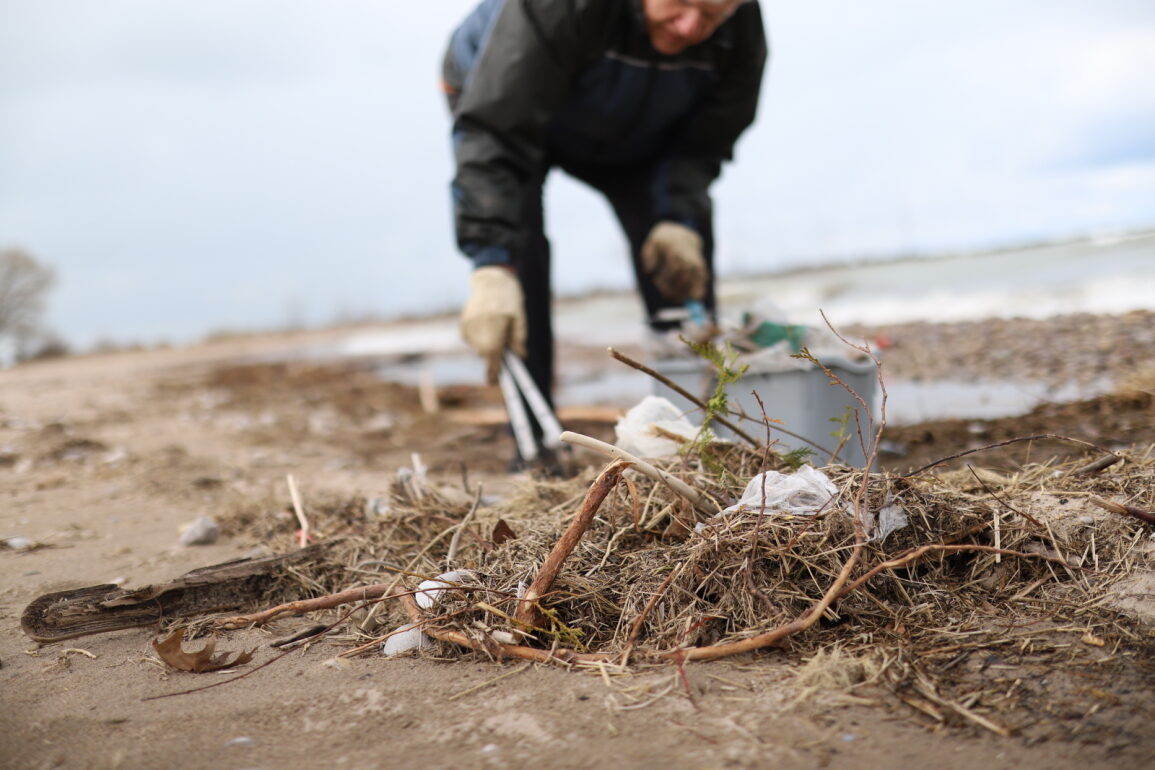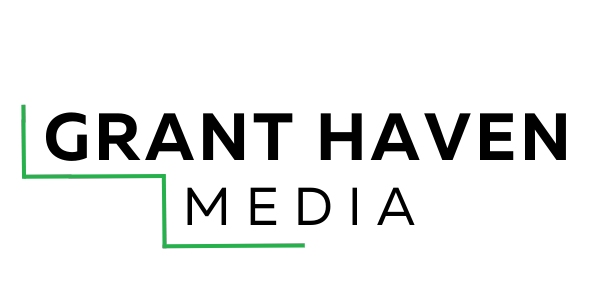
02 May Goderich cleans up nearly 500 pounds of garbage from shoreline
By Kathleen Smith
Lake Huron Coastal Centre hosted another spring clean of the local beaches in Goderich on Saturday, April 20.
This year the beach clean-up had 175 volunteers pick up 480 pounds of garbage from the Goderich shoreline.
“We were thrilled by the community effort shown for Lake Huron,” said Alyssa Bourassa, Executive Director of LHCC.
“Our volunteers persevered through some unexpected (not so nice) weather to make this happen.”
In 2023, 740 volunteers along the entire coast diverted over 1,700 pounds of plastic from ending up in Lake Huron.
Last year the clean up team of 180 volunteers in Goderich removed 600 pounds of litter from the local shoreline.
The work never ends to free Lake Huron from plastic pollution, and to help protect wildlife.
According to Bourassa 22 million pounds of plastic pollution end up in the Great Lakes eery year.
“Hosting beach clean-ups lessens local risk to wildlife through entanglement and ingestion while improving water quality and the aesthetic value of our lake,” added Bourassa.
Nine billion metric tons of plastic has been created globally since 1950 – most of it being produced in the last 15 years.
According to LHCC plastic doesn’t break down and it breaks up into smaller and smaller pieces. This material is made to be affordable and durable – a dangerous combination resulting in an abundance of plastic that will never entirely go away.
Wildlife can become trapped in discarded fishing line and plastic packaging. Plastic can also be mistakenly eaten by wildlife that confuse it for food, leading to malnutrition or loss of life.
Toxic chemicals from the thousands of landfills that are piling up with plastic can seep into the groundwater.
This contaminates water sources like wells, rivers, and lakes that are fed by groundwater.
Beach clean-ups are measures needed to be taken to mitigate the increasing use of single-use plastic items.
According to LHCC more than 40 per cent of all plastic is used once and thrown away, and one study found microplastics in 80 per cent of Lake Huron water samples.
With busy lives, plastic is a convenience and caters to a fast-paced lifestyle. Plastic is everywhere. Furthermore, to the 22 million pounds of plastic ends up in the Great Lakes annually, cigarettes are the number one littered item in Canada.
Cellulose acetate is a plastic found in cigarette filers. The combination of plastic pollution and over 165 different toxic chemicals pose significant threats to water quality and the health of wildlife.
When plastics are in the water, it acts as a magnet for many environmental toxins. When this plastic is swallowed by something like a fish, the chemicals are absorbed into the animal’s body. If an animal or human eat this fish, those chemicals are then passed through the food chain.
The animals highest in the food chain eat larger amounts of food, meaning they are at the highest risk of being exposed to harmful toxins. This process is called biomagnification.
According to the Great Canadian Shoreline Cleanup there are a dozen objects that are most found on beaches across the country. This includes cigarette butts, food wrappers, plastic bottle caps, foam, plastic bottles, straws and stirrers, cans, plastic bags, metal bottle caps, plastic lids, construction materials, and plastic grocery bags.
LHCC states that recycling should be the last defense against plastic pollution.
LHCC offers suggestions to help end the unhealthy relationship with plastic. This includes volunteering with the LHCC: www.lakehuron.ca/volunteer
Courtesy of Zehrs Goderich, participants in the spring clean up were treated to a BBQ lunch. LHCC had partners and sponsors that made this event a possibility. That includes the Tanner Steffler Foundation, Zehrs Goderich, Rotaract Club of Goderich, Compass Minerals, Cait’s Café, Yoga Den, Goderich Port Management Corporation, NWMO, and Goderich Lions Club.


Sorry, the comment form is closed at this time.